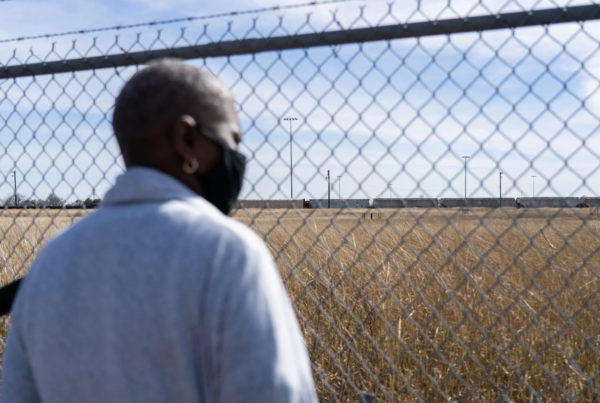Texas is one of the few states where a governor appoints the secretary of state, an official whose main job is to oversee elections.
Last year, amid claims of election fraud by former President Donald Trump and his staunchest supporters, Ruth Ruggero Hughs resigned as Texas secretary of state, and Gov. Greg Abbott appointed an interim for the office: attorney John Scott, who took office in October 2021.
After overseeing four elections and leading a yet-to-be-completed audit of the 2020 vote in four of Texas’ most populous counties, Scott said in a Monday letter to Abbott that he will resign at the end of the year and return to his private practice. On Tuesday, Abbott said he’s nominating retiring state Sen. Jane Nelson to the post.
Brandon Rottinghaus, a political science professor at the University of Houston, said he was surprised by Scott’s announcement ahead of the 2023 legislative session, amid his short tenure.
“It’s surprising that this is such a quick turnaround,” he said. “But the last three governor’s appointees have not been Senate confirmed. And so we’ve had a kind of carousel of rotating secretaries of state. It’s obvious that his tenure didn’t satisfy the far right and certainly it antagonized Democrats, so he was going to have a rocky confirmation. It could be that the governor and his team thought that maybe it was time for the secretary of state to move on, or it also could have been that they had somebody else in mind.”
Scott had a significant amount of legal experience arguing hundreds of cases in front of federal courts and the Supreme Court, Rottinghaus said, and was previously counsel to a lawsuit filed by the Trump team to try to block the certification of Pennsylvania’s electoral votes but withdrew from that as an attorney.
“He kind of pulled back from that, which is actually kind of consistent with his approach,” Rottinghaus said. “He’s been willing to say that elections are fair, but also trying to cater to the far right who said that there’s voter fraud without much of evidence to support it.”
Rottinghaus said Abbott’s new appointee of Nelson, a longtime state senator in North Texas’ District 12, is a great pick: a levelheaded, results-minded lawmaker, and a woman in a male-dominated Legislature.
“It’s not a slam dunk; I think that every kind of political issue is fraught with all kinds of problems nowadays,” he said. “[But] she knows how to navigate the kind of current leadership. And so I think in terms of working with the leaders in Texas right now, in terms of obviously, you know, talking to her colleagues who she just left in the Senate, I think she’s going to be in really good shape.”
In Scott’s resignation letter, he said the final results of an audit of the 2020 elections in Collin, Dallas, Harris and Tarrant counties would be released before his last official day on Dec. 31. It’s unclear whether the potential outcome of that audit has been a factor in his decision to step down.
“It’s been a problem for past secretaries of state when they’ve been involved in these kinds of voter fraud allegations,” Rottinghaus said. “Hope Andrade, who was secretary of state under Rick Perry, got in some hot water after she attempted to disenfranchise a bunch of voters under Texas law. She had basically purged a bunch of voters, but it was done poorly, [and included] one member of the Texas House, Wayne Smith. So it’s definitely the case that this had an effect.
I think the secretary of state is now a much more visible position. It was not something in the past that’s been very visible, but now you’re front center on a lot of these election issues.”















